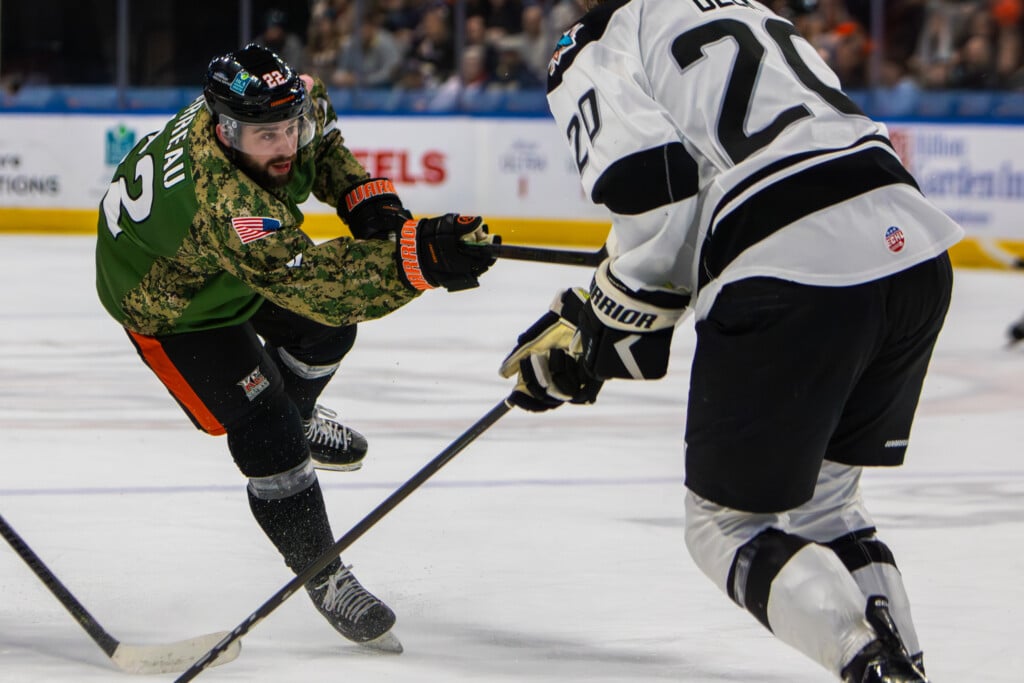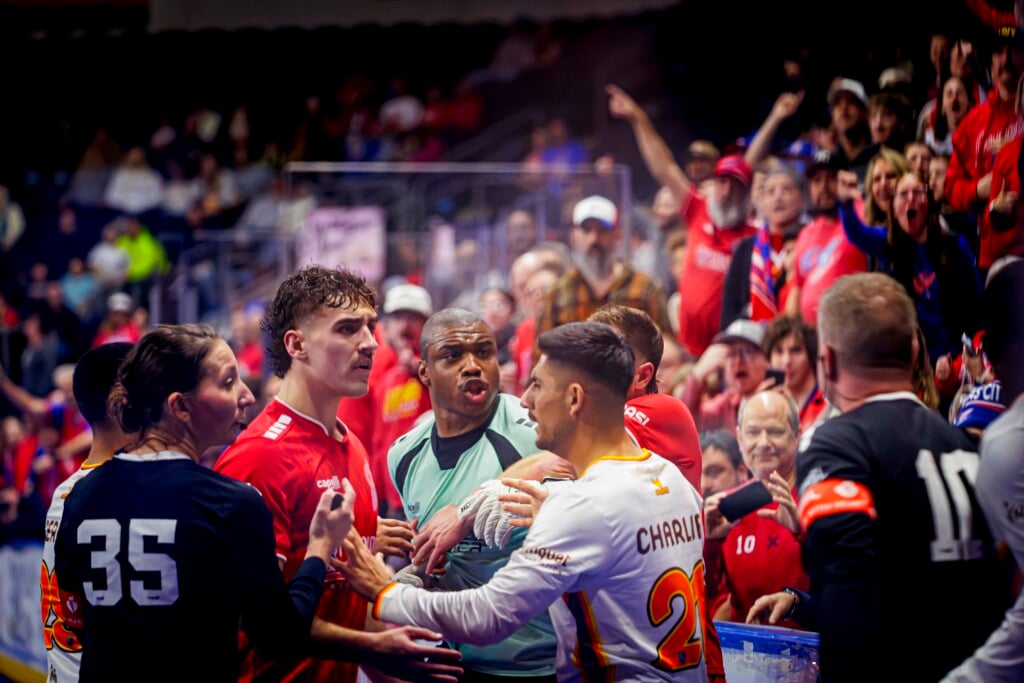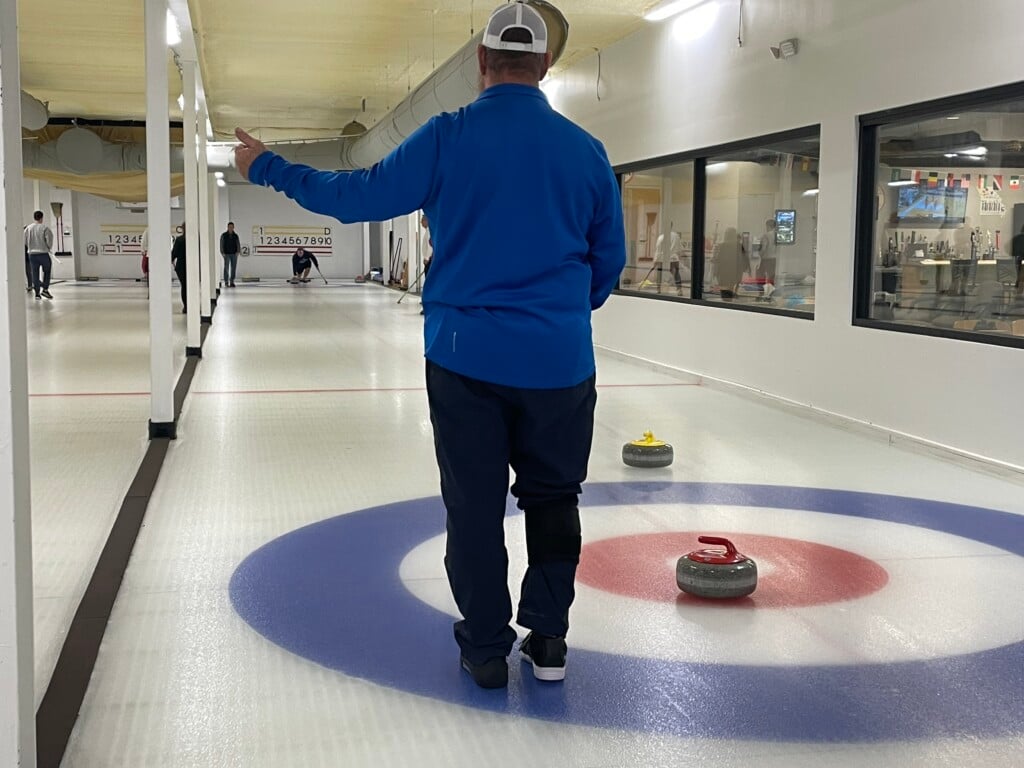Float Like a Butterfly, Sting Like KC: Pickleball’s rise in the metro sparks unexpected setbacks
Few setbacks in life offer the poetic injustice of a sports injury—especially injuries that cause you to never be able to play the game again. So few other hobbies or pastimes carry with them the implied threat that, at any moment, your source of joy may suddenly be stripped from your world.
Such is the case of Daryl Wyatt, a tennis player who went All-American during his freshman year of college and departed academia to pursue his passion on a professional level.
Unfortunately, Wyatt’s career hit an unlucky roadblock: the road itself. “It wasn’t even a result of playing. Just a freak bicycle accident. I went over the handlebars of my bicycle and tore my wrist up, and that was the end of that.”
Wyatt kept his distance from the game, wounded by his inability to participate in the pathway he thought represented his entire future. With enough time, he wound his way back to the courts, this time as a coach.
“It was tough, but I love coaching. I’ve always loved coaching,” he says. “I love seeing growth. Whatever your potential can do, if you just work towards that, I’m happy, it doesn’t matter what your classification is.”
After all of that, his life took a change. He moved to Lawrence and eventually ended up in Leawood as co-owner of SW19—an indoor tennis complex [2008 W 103rd Terrace] which he would later convert into also supporting pickleball.
Pickleball, while being founded in 1965, has seen a rocket ship launch of popularity in recent years—leading many people like Wyatt to switch over from tennis, or picking the sport up completely fresh. The ability of pickleball to serve as a similar style of sporting, while also applying much less strain on joints and muscles, has made it an excellent backup for those who can’t (or don’t feel like) pushing themselves to the brink.
Wyatt’s love of his new adopted sport, alongside his partner Julie Gibson, led to the establishment of the city’s first official pro pickleball team in 2024: The Kansas City Stingers. Wyatt serves as the team’s coach.
The Stringers’ first game in the National Pickleball League will be on May 17 in Algonquin, Illinois. Kansas City proper will host its own games on the weekend of August 9.
Why are people picking pickleball over tennis, especially when tennis is a sport with a much longer legacy? Jason Grubb says, “The athleticism is very similar, but pickleball is such a wonderful thing because it attracts families immediately. It’s an immediate activity.”
Grubb is the recent winner of SW19 men’s combine and was also an owner of a racquet club for over 18 years. With pickleball’s massive growth in popularity, he says, “it’s like the boom of tennis in the 1970s.”
Looking across the metro, it’s easy to see that many formerly empty 20-by-44-foot spaces are being converted into hubs for the growing sport. But its popularity has prompted an unexpected backlash.
Controversy and Health
Prairie Village and Leawood both have been having ongoing noise complaints around pickleball, and have responded quickly with local legislation. Leawood established new, more stringent rules for the construction of any court, and has banned court lighting after 10 p.m.
Wyatt says that the courts are full at 5:30 a.m., so these restrictions in the evening are probably not as impactful as what happens in the morning. While a complex like SW19 may not cause many noise complaints since it’s indoors, for outdoor courts close to people’s homes, the complaints are understandable, as play can reach up to 70 decibel units.
So, how does this get better? “There are companies popping up all over that are dealing with fence curtains that are noise dampening, and trying to get all the clubs and all the cities and parks to buy that product,” Grubb says.
That investment from the city should pay dividends since the accessibility of the sport is central to its swift momentum in popularity. All one needs to do to participate is grab a racket online and then head down to any of the many new locations where games are popping up.
Unfortunately, in a new game where the novice player is entering unaware of possible pitfalls, there are newbies facing small injuries of their own.
“You’re talking about maybe people who didn’t go see an instructor, a certified instructor, and are just out there winging it,” Grubb says. “They might not have any idea of how to sway, how to move on the court, or they have the wrong shoes on. That’s what I see a lot when I go to Chicken N Pickle, for the families out there. That’s where a lot of injuries come from—people’s ankles and knees—because they haven’t had any instruction.”
For those looking into getting classes, the previously mentioned SW19 does offer classes. In Leawood, Kansas City Parks and Recreation offers classes at certain community centers for $5 or $3 for “active agers”—their term for those 60 years old and above who are starting to add a new activity to their weekends.
An Open Invitation to All
Pickleball’s sudden rise in the area means that everyone is looking for opponents. For those feeling somewhat social and walking past a court, you’re liable to get handed a paddle and told to play. Then you notice it’s four hours later and the streetlights have come on. Active recruiting appears to be the name of the game.
DUPR is a pickleball-specific style of ranking, matching those in leagues with others purely based on performance. So you’re getting matched up with people of all ages, genders, wingspan, etc. It doesn’t matter if you can hit the ball and play about as well, you can get paired up. Other sports can obviously suffer from a major imbalance in the amount of popularity given to them, depending on gender. Rankings like DUPR help prevent this problem and allow players a fair shot regardless of things outside their control.
Of course, not every event follows this system, but the fact that it’s becoming widely adopted is a great sign for the future.
Outside of being welcoming when it comes to younger people looking to learn, Wyatt says, “With pickleball adding college scholarships and college teams, that’s another avenue for some of these kids to get in through. So we want to open that avenue up so that they get all the opportunities. We’re looking to lessen that gap or lessen the intimidation factor for kids to get to that level.”








